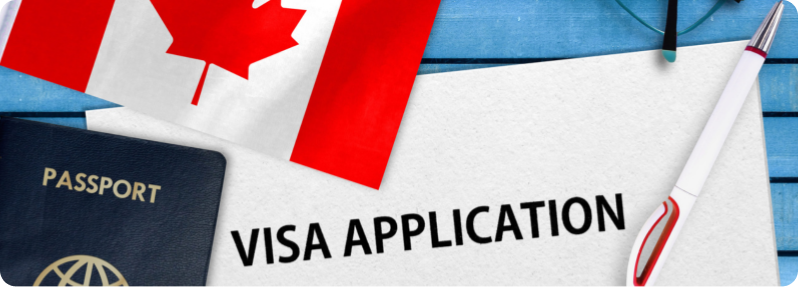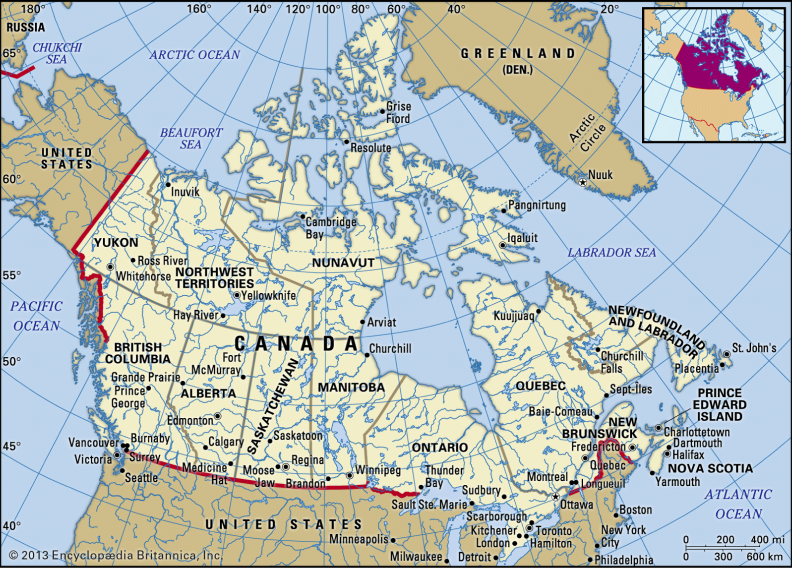LAST DAY! ⏳ Secure top scores and your uni dream. 💡Only Rp 90,000 for 40 minutes. Offer ends MIDNIGHT!
LAST DAY! ⏳ Secure top scores and your uni dream.
💡Only Rp 90,000/hour TODAY. Offer ends MIDNIGHT!
LAST DAY! ⏳ Secure top scores and your uni dream. 💡Only Rp 90,000 for 40 minutes. Offer ends MIDNIGHT!
LAST DAY! ⏳ Secure top scores and your uni dream.
💡Only Rp 90,000/hour TODAY. Offer ends MIDNIGHT!

Top Universities

Safe Environment

Work Opportunities

Research Opportunities

High Standard of Living




Here are some of the reasons why studying in Canada is a good idea:
Canada is a popular destination for students looking for an outstanding education in a country that is renowned for its academic achievements, diverse society, and excellent standard of living.
The cost of living in Canada for international students can vary based on the city and lifestyle, but it tends to be moderate to high. On average, students are expected to spend around 15,000 CAD to 20,000 CAD per year on living expenses.
Additional expenses such as transportation, utilities, and entertainment might vary, but students often take advantage of discounts and cost-effective public transportation choices. Metropolitan areas such as Vancouver and Toronto tend to have higher living costs, whereas smaller cities and towns often offer more budget-friendly options.
Tuition Fee for International Students:

A student visa for Canada, also known as a study permit, is a document issued by the Canadian government that allows international students to study at designated educational institutions in Canada. Obtaining a student visa is a crucial step for foreign students who wish to pursue higher education in Canada.
Student visa Canada requirements
To apply for a student visa to study in Canada, you’ll need the following:
International Student Health Insurance
Provides a range of benefits to students studying in Canada, including emergency medical evacuation, mental health coverage, and protection for sports injuries. It’s a valuable resource for students pursuing their higher education.
International Travel Medical Insurance
A valuable addition to your regular health insurance plan, offering coverage in emergency situations. There are several valuable advantages to consider, such as coverage for emergency medical evacuation and unexpected illnesses or injuries.
International Major Medical Insurance
If you’re residing abroad for an extended period, it’s essential to have a long-term health insurance plan that can be renewed annually. This annual plan offers comprehensive coverage for individuals and their families.






Find out how the various Canadian provinces handle health insurance in their own unique ways. Please follow these instructions to the letter if you wish to attend a college or university in this province that offers health insurance.
If the province doesn’t offer you health insurance coverage, you will have to apply for one through a private firm before leaving for Canada. For this, you need to:

• University of Ottawa
• University of Manitoba
• Western University

• University of Ottawa
• University of Manitoba
• Western University

• Western University
• Simon Fraser University
• University of Waterloo

• University of Waterloo
• University of Ottawa
• Western University

• Simon Fraser University
• Carleton University
• University of Ottawa
| Accommodation expenses in Canada for international students | Expenses (approx) |
|---|---|
| Accomodation On Campus | 8,000 CAD - 10,000 CAD per year |
| 1-bedroom apartment located outside of the city centre | 1200 CAD per month |
| 1-bedroom apartment located in the city centre | 1,300 CAD per month |
| Off-campus Shared Apartmen | 400 CAD - 700 CAD per month |









After graduation, many students aspire to pursue higher education or embark on their professional journey to shape their career. If you plan on working in a country other than your own, obtaining a post-study work permit is essential for staying in Canada. This article provides a thorough overview of Canadian job opportunities for international students, as well as the process for applying and obtaining a work permit.
Staying in Canada comes with a process to obtain a post-graduation work permit, granting you up to 3 years to stay after completing your studies. The duration of the permit will vary based on the type and length of your course. If you’re looking to expand your studies, you have the option to apply for an extended study permit or explore job opportunities in Canada. If you choose to pursue your studies in Canada for a duration of 1 year, you will have the opportunity to extend your stay in the country for an additional year. Similarly, if you are studying in Canada for 2 years, students have the opportunity to apply for a 3-year work permit.

Canada is a vast and rugged land, full of endless possibilities. It covers a vast expanse, stretching from the northernmost point to the southernmost point of the Northern Hemisphere. Spanning nearly 4,700 miles (7,560 kilometres) from east to west, this vast region covers six time zones. Despite being the second largest country in the world, its population comprises just a small percentage of the total worldwide population
Canada, the second-largest country in the world by land area, is located in North America. It extends from the Atlantic Ocean in the east to the Pacific Ocean in the west and northward into the Arctic Ocean. Canada shares the world’s longest bi-national land border with the United States to the south and the US state of Alaska to the northwest. Canada’s diverse landscapes include vast forests, high mountains, and over 2 million lakes. The country is known for its sparsely populated regions, with much of its land covered by tundra and the Rocky Mountains. Major cities include Toronto, Montreal, Vancouver, and the capital city, Ottawa. The country is also famous for its natural beauty, with national parks and wildlife being significant attractions..
Do’s
Don’ts

Top Universities

Safe Environment

Work Opportunities

Research Opportunities

High Standard of Living




Here are some of the reasons why studying in Canada is a good idea:
Canada is a popular destination for students looking for an outstanding education in a country that is renowned for its academic achievements, diverse society, and excellent standard of living.
The cost of living in Canada for international students can vary based on the city and lifestyle, but it tends to be moderate to high. On average, students are expected to spend around 15,000 CAD to 20,000 CAD per year on living expenses.
Additional expenses such as transportation, utilities, and entertainment might vary, but students often take advantage of discounts and cost-effective public transportation choices. Metropolitan areas such as Vancouver and Toronto tend to have higher living costs, whereas smaller cities and towns often offer more budget-friendly options.
Tuition Fee for International Students:

A student visa for Canada, also known as a study permit, is a document issued by the Canadian government that allows international students to study at designated educational institutions in Canada. Obtaining a student visa is a crucial step for foreign students who wish to pursue higher education in Canada.
Student visa Canada requirements
To apply for a student visa to study in Canada, you’ll need the following:

• University of Ottawa
• University of Manitoba
• Western University

• University of Ottawa
• University of Manitoba
• Western University

• Western University
• Simon Fraser University
• University of Waterloo

• University of Waterloo
• University of Ottawa
• Western University

• Simon Fraser University
• Carleton University
• University of Ottawa
| Accommodation expenses in Canada for international students | Expenses (approx) |
|---|---|
| Accomodation On Campus | 8,000 CAD – 10,000 CAD per year |
| 1-bedroom apartment located outside of the city centre | 1200 CAD per month |
| 1-bedroom apartment located in the city centre | 1,300 CAD per month |
| Off-campus Shared Apartmen | 400 CAD – 700 CAD per month |

Register With Gold Star Education And Talk With Our Expert Counsellor








After graduation, many students aspire to pursue higher education or embark on their professional journey to shape their career. If you plan on working in a country other than your own, obtaining a post-study work permit is essential for staying in Canada. This article provides a thorough overview of Canadian job opportunities for international students, as well as the process for applying and obtaining a work permit.
Staying in Canada comes with a process to obtain a post-graduation work permit, granting you up to 3 years to stay after completing your studies. The duration of the permit will vary based on the type and length of your course. If you’re looking to expand your studies, you have the option to apply for an extended study permit or explore job opportunities in Canada. If you choose to pursue your studies in Canada for a duration of 1 year, you will have the opportunity to extend your stay in the country for an additional year. Similarly, if you are studying in Canada for 2 years, students have the opportunity to apply for a 3-year work permit.

Canada is a vast and rugged land, full of endless possibilities. It covers a vast expanse, stretching from the northernmost point to the southernmost point of the Northern Hemisphere. Spanning nearly 4,700 miles (7,560 kilometres) from east to west, this vast region covers six time zones. Despite being the second largest country in the world, its population comprises just a small percentage of the total worldwide population
Canada, the second-largest country in the world by land area, is located in North America. It extends from the Atlantic Ocean in the east to the Pacific Ocean in the west and northward into the Arctic Ocean. Canada shares the world’s longest bi-national land border with the United States to the south and the US state of Alaska to the northwest. Canada’s diverse landscapes include vast forests, high mountains, and over 2 million lakes. The country is known for its sparsely populated regions, with much of its land covered by tundra and the Rocky Mountains. Major cities include Toronto, Montreal, Vancouver, and the capital city, Ottawa. The country is also famous for its natural beauty, with national parks and wildlife being significant attractions..
Do’s
Don’ts
Customer Service
Customer Service

Enhance your platform experience to the fullest.
Register now and unlock a world of exclusive benefits tailored just for you.